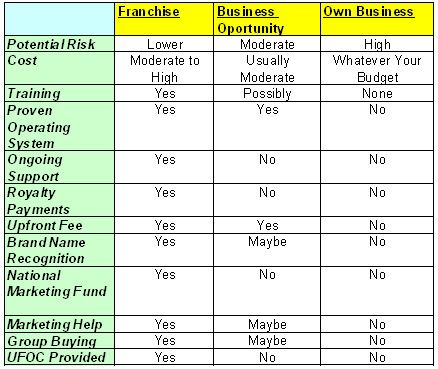In the early days of franchising, the relationship between franchisors and franchisees was a lot less complicated and less sophisticated, and the franchise agreement was a lot less vague than it is now. Today many franchisors limit what they offer to franchisees within the franchise agreement. The reason for this lack of specific clauses is because franchisors fear franchisees will demand more from their franchise agreement if more clauses are added in the agreement at the begining of negotiations.
So what does this mean for potential franchisees and what general clauses should they expect to be positioned within the franchise agreement?
1. Training
It is essential in franchising, that franchisors must provide training for new franchisees in how to operate the franchised business. This obligation to train must continue beyond initial training, so that franchisors are obliged to provide continuing and further support to franchisees during the continuation of the franchise agreement. This must be stated in the franchise agreement from the beginning…
2. Protection
Franchisees pay franchisors for the right to use the franchisor’s intellectual property such as the trade name, trade marks, know-how, copyright, business system and so on. A balance has to be struck between what is necessary, desirable or practicable for the interests of the franchisor, the franchisee and the franchised network as a whole.
Franchise agreements should contain provisions relating to branding/trademarks and its portection (for example, taking court proceedings against infringers of franchisor’s intellectual property) so that prospective franchisees can make a decision, as to whether such provisions are acceptable to them or not.
3. Support
Crucial to any successful franchised operation is the level of support a franchisor gives to its franchisees in its operation of its franchised business. This after all is one of the things franchisees pay for.
Therefore there should be a positive obligation on the part of the franchisor to provide such support as a franchisee may require from start to finish. The level of support however, will vary from one franchisor to another. The best advice here is to state clearly what support is offered by the franchisor, and if there is a possibility of continual support.
4. Improvements
One of the fundamentals to any franchisor/franchisee relationship agreement is the on-going improvement of services, products and the business system itself which is implemented from the start of the franchise agreement.
One of the principal obligations of franchisees is to sell goods or services which are the subject of the franchise, not to develop them. It is up to the franchisor to think of improvements for the business and to implement these changes with the help and assistance of the franchisee. At the beginning of the franchise business, improvements to the business system must come from the franchisor.
5. Quality Control
Different franchisors have different methods of ensuring that quality is maintained throughout their franchised network. Before franchisors can do this they must be sure of the quality of their own system, products, services, staffing and so on. This is best achieved by demonstration, and these days very few if any franchisees will buy a franchise without having first proven the business system works effectively.
Having established a high quality business system, the franchisor must also state in the franchise agreement, that all franchisees must meet the standards of quality put in place. This ensures that high standards of quality are met and the business system can run more smoothly.
6. Advertising marketing and promotions
This is the last obligation, and one in which not everyone will agree to. Some feel that the obligation to provide advertising marketing and promotions of the franchise, at least at the national level, should be that of the franchisor.
Much depends on the nature of the business. In some cases franchisors are content to leave it to the franchisees and feel that their franchised business would benefit little, by any form of national advertising.
Other franchise systems are increasingly reliant on national advertising and marketing campaigns, and promote such campaigns in a consistent way that involves the entire franchise network.
In essence, PR and Marketing is generally regarded as a beneficial campaign for the effective promotion of the business system, and most franchisors will obligingly manage campaigns on behalf of the franchisees.
In other cases, the franchisor may enable localized campaigns to be conducted and managed by the franchisees themselves. Once again, this obligation on the part of the franchisor will be mentioned within the franchise agreement.
There are many more “obligations” by which a franchisor should help a franchisee operate a franchise system successfully. It is up to the franchisee to study carefully the clauses within the franchise agreement to understand fully the consequences involved within running a franchise business before signing on the dotted line…
If you have any more obligations a potential franchisee should be made aware of it, please feel free to leave a comment.
 Aine Meade is a Website Editor for Franchise Direct, a leading Internet franchise advertising portal. Aine creates high quality franchise information for its international websites in the U.S., and Europe. Aine has a BA (First) in English and History; MA in Literature & Publishing; Diploma in Media Journalism and a Diploma in Marketing.
Aine Meade is a Website Editor for Franchise Direct, a leading Internet franchise advertising portal. Aine creates high quality franchise information for its international websites in the U.S., and Europe. Aine has a BA (First) in English and History; MA in Literature & Publishing; Diploma in Media Journalism and a Diploma in Marketing.






 Kim Ellis is the President of
Kim Ellis is the President of 

